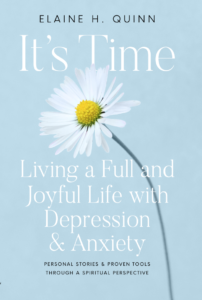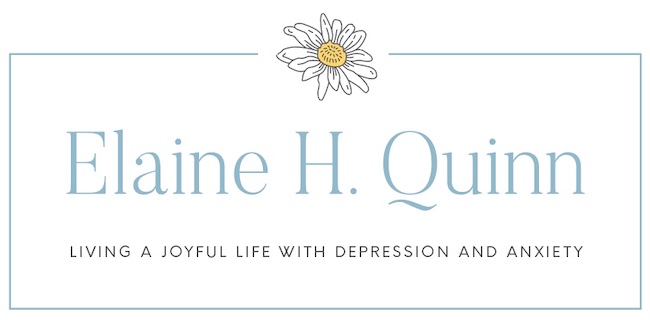
Anger and Depression Is your anger signaling depression?

My brain is not connecting the dots.
I was just so frustrated. It seemed simple enough – shoes first, pants next, don’t forget my hair towel. I don’t enjoy packing for trips, so I made up a check list to try and make it easier. Today I am staring at the list and still can’t seem to move ahead filling my suitcase. I’m looking forward to helping my sister at her son’s wedding, yet I am having trouble focusing on what I want to wear to the celebration. My depression and anxiety are not sitting quietly and obediently in the corner like I want them to, and today my brain just isn’t connecting the dots.
There is a fog settling in. I hate brain fog. My frustration is growing that packing for a trip has turned from a 45 min. task into an over two-hour chore and at the present moment I’m still not done. I look at my watch and realize I have to leave soon for the airport. What jewelry should I pack? Ugh, I don’t’ know! Adrenalin kicking in about now should help, but I feel out of sorts and irritable.
Irritability begins to sweep through me.
When my brain isn’t focusing, I get frustrated, and irritability begins to sweep through me. I want to sit down and throw a tantrum. I understand why two-year-old’s experience the “terrible twos” with tantrums and tears. They just want to do things that they are too young to do all by themselves. Like cutting their food with a sharp knife. My brain is acting like it’s two, right now. I am not feeling capable of doing something that I should be able to do. My frustration begins to turn into anger. I want to start throwing things. It is not like me to be so out of control. I hate feeling this way
Everyone gets angry and I believe all emotions are valid. Sometimes anger is the appropriate reaction and this emotion can help us work through problems that may be causing the intense feelings. Healthline.com says this about anger: “Anger generally happens when you face some type of injustice or feel slighted, threatened, or otherwise mistreated. Anger often resolves once you’ve solved the problem, addressed the threat, or taken some time to sit with and sort through your feelings…But a constant simmer of anger that lacks a clear cause can suggest a more complex underlying cause, such as depression.”

Is your anger signaling depression?
Depression can make you feel impatient, easily frustrated, annoyed, defeated, guilty, and give you a sense of being out of control. These feelings can intensify into a level of anger which is not typical of who you are. In addition the intensity of your feelings are also not in proportion to your circumstances. In other words, when you are out of control you react at a level 7 to a level 2 problem.
If you think your anger is a symptom of depression, you can make a courageous decision to reach out for help. Begin by opening up and talking to a trusted friend or family member about your feelings. Have them help you obtain an appointment with your primary care doctor. You doctor can assess what may be causing your symptoms. If they suspect depression or anxiety, they can give you a recommendation to a doctor who specializes with these illnesses, a psychiatrist. There are answers for becoming well!
Anger can be hard to deal with.
I have found with anger that I have allowed to get out of control, that it is not a simple thing to deal with or defuse. I’d rather be sad and cry it out. It’s hard to break the fever of anger. And throwing things in the past has turned out not to be a helpful solution. So, I stop and think about my options.
I take daily medication to give me a springboard, so to speak, to help me manage my depression. This allows me to do other things to help myself with the symptoms. When it comes to anger, I have a list of ways to help myself manage it. So, today I stop packing and take some deep breaths even raising and lowering my arms as I breathe in and out, while sitting quietly for a few minutes.

Start with compassion not shame.
I choose to start with compassion. I tell myself it is okay to be in slow motion because today my depression and anxiety are making functioning difficult for me. As I remind myself that my brain is not working in a typical way, it gives me empathy for my condition, and I don’t allow shame to make me feel worse. I then slow down and give myself breaks when trying to complete a task. My breathing helps to relax me and the compassion I feel helps to defuse the anger. I give myself permission to move slower and this switch in my thinking changes into a more settled and calmer me.
Here are a few other options for managing anger caused by depression:
- Reach out and ask for help when a task is overwhelming for you. When I do ask someone for help, people are usually happy to assist. Who is the right person to help you solve the particular problem you have?
- Talk to a friend about your anger until the “fever breaks.” Just having someone understand me and the situation can make a big difference for good on the way I feel.
- Tear up an old magazine. It can help to release some of the built-up frustration that is inside of you. This seems to help me when my anger energy is high.
- Go for a long walk. Going outside and moving my body helps me to get out of myself and gain a clearer perspective.
- Listen to music. A favorite calming play list could come in handy and help a lot.
React to frustration at the appropriate level.
Embracing anger and learning to manage it is a better way to handle this difficult emotion than just trying to deny it. Yet this article is not just about squelching anger, it is also about becoming well and being able to react to a level 2 problem with a level 2 reaction. I want to encourage you to get the help you need if depression is causing your anger to be out of control. You can become the person you want to be by getting help and not allowing depression to be in charge.
……………….
If anger is a red flag that something in your life needs to change. I have more ideas for you in my book, “It’s Time, Living a Full and Joyful Life with Depression and Anxiety.” Chapter 12 deals with the anger depression can cause.

If you would like personalized help for anger caused by depression, click here for a free consultation with Elaine.

Click here for a free consultation











I really enjoyed reading this. I think it’s so helpful to understand anger’s role in depression. I also like your tips for dealing with frustration at it’s appropriate level. Thank you for this!
Thanks Katie I’m glad it was helpful.